Ditapis dengan
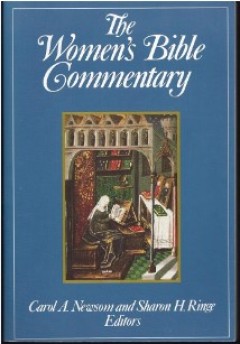
The Women's Bible Commentary
- Edisi
- First Published
- ISBN/ISSN
- 0-664-21922-5
- Deskripsi Fisik
- xix +396 pgs.; 24 cm.
- Judul Seri
- -
- No. Panggil
- 220.7082 WOM w
- Edisi
- First Published
- ISBN/ISSN
- 0-664-21922-5
- Deskripsi Fisik
- xix +396 pgs.; 24 cm.
- Judul Seri
- -
- No. Panggil
- 220.7082 WOM w
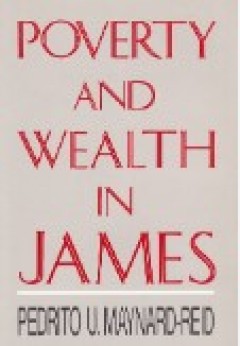
Poverty and Wealth in James
- Edisi
- First Published
- ISBN/ISSN
- 0-88344-417-8
- Deskripsi Fisik
- vii + 136 pgs.; 21 cm.
- Judul Seri
- -
- No. Panggil
- 227.91067 MAY p
- Edisi
- First Published
- ISBN/ISSN
- 0-88344-417-8
- Deskripsi Fisik
- vii + 136 pgs.; 21 cm.
- Judul Seri
- -
- No. Panggil
- 227.91067 MAY p
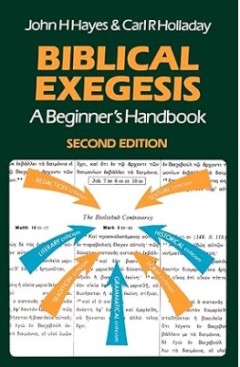
Biblical Exegesis: A Beginner's Handbook
This is an excellent guide to the various methods of biblical criticism to put into the hands of students. There are chapters on textual, historical, grammatical, literary, form, tradition, and redaction criticism, each concluding with a bibliography.
- Edisi
- First Published
- ISBN/ISSN
- 334-00125-0
- Deskripsi Fisik
- 132 pgs.; 21,5 cm.
- Judul Seri
- -
- No. Panggil
- 220.601 HAY b
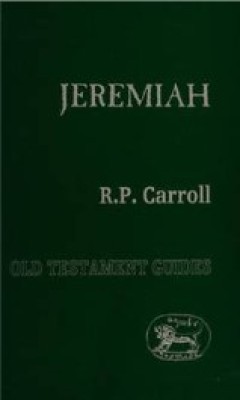
Jeremiah : Old Testament Guides
- Edisi
- First Published
- ISBN/ISSN
- 1-85075-146-3
- Deskripsi Fisik
- 128 pgs.; 21,5 cm.
- Judul Seri
- -
- No. Panggil
- 224.207 CAR j.a
- Edisi
- First Published
- ISBN/ISSN
- 1-85075-146-3
- Deskripsi Fisik
- 128 pgs.; 21,5 cm.
- Judul Seri
- -
- No. Panggil
- 224.207 CAR j.a

Jeremiah 2 : A Commentary on the Book of the Prophet Jeremiah Chapters 26 -52
- Edisi
- First Published
- ISBN/ISSN
- 0-8006-6022-6
- Deskripsi Fisik
- xxxi + 543 pgs.; 24 cm.
- Judul Seri
- -
- No. Panggil
- 224.207 HOL j2
- Edisi
- First Published
- ISBN/ISSN
- 0-8006-6022-6
- Deskripsi Fisik
- xxxi + 543 pgs.; 24 cm.
- Judul Seri
- -
- No. Panggil
- 224.207 HOL j2
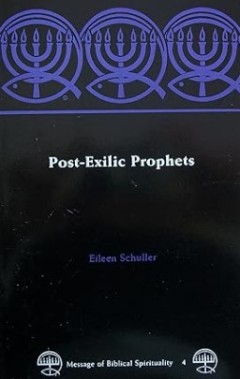
Post-Exilic Prophets
- Edisi
- First Published
- ISBN/ISSN
- 0-89453-570-6
- Deskripsi Fisik
- 192 pgs.; 21 cm.
- Judul Seri
- -
- No. Panggil
- 224 SCH p
- Edisi
- First Published
- ISBN/ISSN
- 0-89453-570-6
- Deskripsi Fisik
- 192 pgs.; 21 cm.
- Judul Seri
- -
- No. Panggil
- 224 SCH p
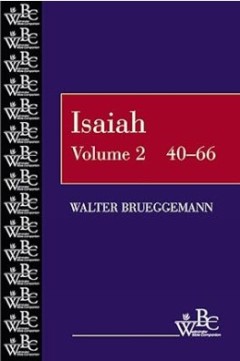
Isaiah 40-60
In this volume, Walter Brueggemann focuses on Second Isaiah (Isaiah 40-55), believed to be written by a second exilic poet, and Third Isaiah (Isaiah 56-66), a third group of texts that rearticulate Isaianic theology in yet another faith situation. Brueggemann discusses both the distinctiveness of the texts and their canonical relatedness. Books in the Westminster Bible Companion series assis…
- Edisi
- First Published
- ISBN/ISSN
- 0-664-25524-8
- Deskripsi Fisik
- x + 263 pgs.; 23 cm.
- Judul Seri
- -
- No. Panggil
- 224.1017 BRU i
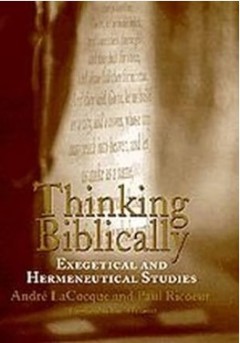
Thinking Biblically : Exegetical and Hermeneutical Studies
Unparalled in its poetry, richness, and religious and historical significance, the Hebrew Bible has been the site and center of countless commentaries, perhaps none as unique as Thinking Biblically. This remarkable collaboration sets the words of a distinguished biblical scholar, André LaCocque, and those of a leading philosopher, Paul Ricoeur, in dialogue around six crucial passages from the …
- Edisi
- First Published
- ISBN/ISSN
- 0-226-71337-7
- Deskripsi Fisik
- xix + 441 pgs.; 23,5 cm.
- Judul Seri
- -
- No. Panggil
- 221.6 LAC t
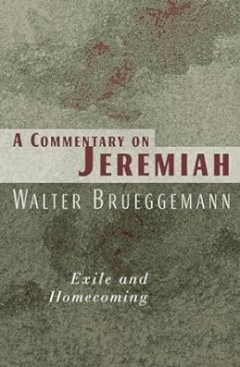
A Commentary on Jeremiah : Exile & Homecoming
Jeremiah's poignant lament over Judah's social and religious disintegration reflects God's own pathos-laden yearning for his disobedient covenant people. In this widely praised expository commentary Walter Brueggemann, one of the premier Old Testament scholars of our time, explores the historical setting and message of Jeremiah as well as the text's relevance for the church today. Offering a…
- Edisi
- First Published
- ISBN/ISSN
- 0-8028-0280-X
- Deskripsi Fisik
- xiv + 502 hlm.; 23 cm.
- Judul Seri
- -
- No. Panggil
- 224.207 BRU c

The Literary Guide to the Bible
Rediscover the incomparable literary richness and strength of a book that all of us live with an many of us live by. An international team of renowned scholars, assembled by two leading literary critics, offers a book-by-book guide through the Old and New Testaments as well as general essays on the Bible as a whole, providing an enticing reintroduction to a work that has shaped our language and…
- Edisi
- First Published
- ISBN/ISSN
- 0-00-217439-1
- Deskripsi Fisik
- 678 pgs.; 26 cm.
- Judul Seri
- -
- No. Panggil
- 809.93522 LIT l
 Karya Umum
Karya Umum  Filsafat
Filsafat  Agama
Agama  Ilmu-ilmu Sosial
Ilmu-ilmu Sosial  Bahasa
Bahasa  Ilmu-ilmu Murni
Ilmu-ilmu Murni  Ilmu-ilmu Terapan
Ilmu-ilmu Terapan  Kesenian, Hiburan, dan Olahraga
Kesenian, Hiburan, dan Olahraga  Kesusastraan
Kesusastraan  Geografi dan Sejarah
Geografi dan Sejarah